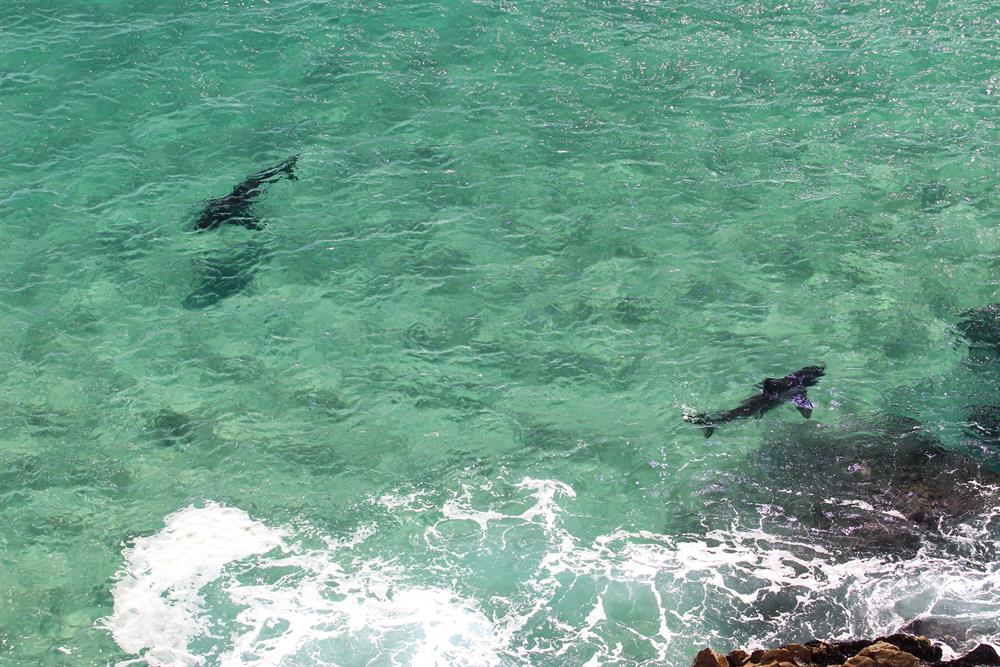PLETTENBERG BAY NEWS - With researchers at the Orca Foundation in Plettenberg Bay surveying marine life along the coast, they have taken stock of their findings over the past few months.
One of their focus areas was seal strandings, especially since November. Several carcasses washed up on local beaches and caused concern among beachgoers and residents, however, marine biologist at the foundation, Frikkie van der Vyver, explained that this is a natural occurrence.
Breeding season a factor
November marks the start of the annual Cape fur seal breeding season on the Robberg Peninsula. "With it comes the usual increase in seal carcasses washed ashore on nearby Robberg beaches, especially newborn pups that had drowned after getting knocked off the rocks by big swells during easterly storms," he said.
Van der Vyver and the Orca team continued to monitor this natural mortality and collected examples over the breeding season as part of long-term research for the Port Elizabeth Museum.
Ongoing surveys
Van der Vyver said that during October and November, volunteers also assisted biologists during eight boat-based photo identification surveys in the Keurbooms River as part of the research into the presence of Cape fur seals in estuaries. One to five seals were present in the estuary during these surveys.

"A vast majority of the seals still appear to be subadult and adult males, but a few yearlings were also encountered," said Van der Vyver. "Once our biologist has established a more long-term dataset, researchers will be able to examine the seasonal presence of specific individuals in the estuary, their movements, behaviour and potential impact on vulnerable estuarine fish species that are also of recreational and conservational concern. Eventually, long-term data can be used to place the possible impact of river specialists into context with current recreational fishing pressure, which volunteers also record during surveys," he said.
'Decline in shark sightings'
Biologists also responded to two cetacean strandings during December, when bottlenose dolphins washed ashore after dying. According to the foundation's Danielle Conry, the first was a male which appeared to have been bitten by a shark. It washed ashore at Brenton-on-Sea. The second was a male calf that came ashore in Wilderness.

The foundation's volunteers continued their shark monitoring along the Plettenberg Bay coast and noticed a marked decline in great white shark sightings along the Robberg marine protected area (MPA) between October and November.
There was, however, an increase in sightings of other species such as hammerhead sharks, it was reported.
Safety in numbers
Biologists' preliminary analyses revealed that the decline in white shark sightings in the MPA were followed by declines in the average group size of seals travelling to and from the local colony. As Cape fur seals have been shown to display safety-in-numbers tactics at other breeding colonies along the coastline, it appears this behaviour is also part of their anti-predator tactics at the Robberg Peninsula.
"More data and analyses are however needed to test the influence of other factors potentially affecting seal traffic at the colony, such as seasonal prey availability and other behaviours associated with their annual breeding cycle," the foundation says.
Baboons also in spotlight
The institution also supports research into the behaviour of land-based animals along the coast and one of these projects is the intertidal baboon scat survey.
During the last quarter, volunteers conducted a total of seven intertidal baboon scat surveys at four different sites between Plettenberg Bay and Knysna. These sites are surveyed monthly for baboon scats as part of a PhD study by Maxine Whitfield-Smit based at the Centre for Coastal Palaeoscience at Nelson Mandela University. Her study aims to determine whether chacma baboons forage intertidally along certain stretches of the Cape South coast and what factors influence their preference for certain areas of the coastline.
Find out more
Visit www.orcafoundation.com
'We bring you the latest Plettenberg Bay, Garden Route news'
















